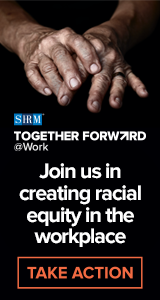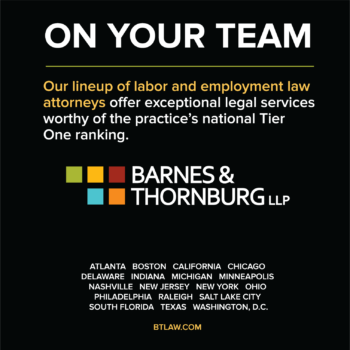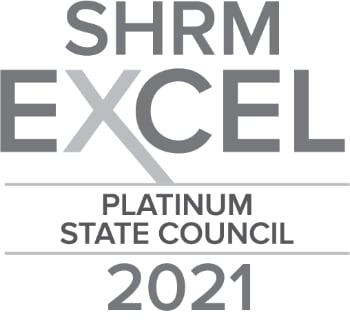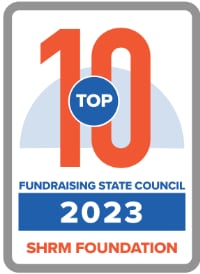This blog is contributed by David J. Pryzbylski, Partner, Barnes and Thornburg LLP.
The wave of harassment claims sweeping the country recently has spawned countless workplace investigations. But can companies require employees to keep such investigations “confidential” (i.e. direct employees to refrain from discussing an investigation while it is ongoing)?
The National Labor Relations Board (NLRB) has placed limits on employers’ ability to do so – both union and non-union alike.
NLRB’s Position on Confidentiality of Workplace Investigations
In a 2015 decision – Banner Health System, 362 NLRB No. 137 (June 26, 2015) – the NLRB ruled that an employer violated the National Labor Relations Act (NLRA) by directing employees to keep information related to internal investigations confidential.
The NLRB held: “[A]n employer may restrict those discussions only where the employer shows that it has a legitimate and substantial business justification that outweighs employees’ Section 7 rights.” The agency held that NLRA Section 7 rights include a general right to discuss workplace issues, including workplace investigations.
According to the board’s ruling, before telling employees to refrain from discussing an ongoing investigation, the employer has the burden to first determine whether, in any given investigation, one or more of the following issues is present:
- Witnesses needing protection;
- Evidence in danger of being destroyed;
- Testimony in danger of being fabricated; or
- There is a need to prevent a cover-up
In Banner Health System, the agency explicitly ruled that an employer’s general assertion of protecting the integrity of an investigation “clearly fail[s] to meet” that burden. Thus, the NLRB requires actual proof that one of the four potential issues it identified is in play before an employer can require that its ongoing workplace investigation remain confidential.
Fast forward to 2018. The Banner Health System ruling seemingly remains the NLRB’s position. In Costco, 366 NLRB No. 9 (Feb. 2, 2018), the NLRB affirmed an administrative law judge’s ruling that Costco violated the NLRA when it verbally instructed just one employee who was the subject of a workplace investigation to refrain from discussing the matter while the investigation was ongoing. In essence, the board reaffirmed its commitment to its ruling in Banner Health System, at least for now. Accordingly, employers need to be mindful of the NLRB’s stance on requiring employees to keep investigations confidential both in unionized and non-unionized settings.
This decision may be somewhat surprising to employers given that the NLRB recently overruled a significant amount of prior precedent that hamstrung employers on multiple fronts, including with respect to standard handbook policies.
Possible Changes Under the New NLRB
It is possible that the NLRB’s position on this front could change. On December 1, 2017, new NLRB General Counsel Peter Robb issued a memo signaling his office may be seeking to have the board overturn NLRB precedent in a number of areas.
The memo makes it mandatory for all NLRB regional directors to submit “cases that involve significant legal issues” to the general counsel for advice. These cases are defined as those decided in the previous eight years that overruled precedent and involved one or more dissents. The memo then lists a number of specific cases falling under these criteria, including Banner Health System and its holding with respect to workplace investigations.
In addition, the Costco case was litigated and briefed before Robb took office, so there is a chance the NLRB could revisit this issue in the future and ease up limitations on this front. Further, the NLRB historically waits to overrule significant precedent until it has a complement of five members, and it only had four members at the time the Costco decision came down. The board now has five members again, potentially making this issue ripe for a fresh review.
Employers may be hoping the NLRB softens its view, as having the ability to keep investigations confidential often can help ensure the integrity of the process and maximize opportunity for reaching the right result.
The EEOC’s Position
Further complicating this issue for employers is the fact that the Equal Employment Opportunity Commission (EEOC) has instructed employers to keep workplace investigations as confidential as possible. They also include in their anti-harassment policies and complaint procedures an assurance that the employer will protect the confidentiality of harassment complaints to the extent possible.1
This obviously conflicts with the NLRB’s position in Banner Health System, an issue realized by the EEOC in June 2016 when it called for the two agencies to confer and “work together to harmonize” the conflicting requirements.2 As of July 2018, however, no formal joint-guidance regarding these issues has been issued by the agencies.
During this tumultuous time, employers should remain vigilant in their handling of workplace investigations. While difficult given the conflicting advice from the EEOC and NLRB, employers must carefully navigate the potential competing interests between the need for confidentiality in workplace investigations and the limitations imposed by the NLRB.
___________________________________________________________________
This Barnes & Thornburg LLP publication should not be construed as legal advice or legal opinion on any specific facts or circumstances. The contents are intended for general informational purposes only, and you are urged to consult your own lawyer on any specific legal questions you may have concerning your situation.
1 Feldblum & Lipnic, Select Task Force on the Study of Harassment in the Workplace, 38 EEOC (June 2016).
2 Id. at 42.






